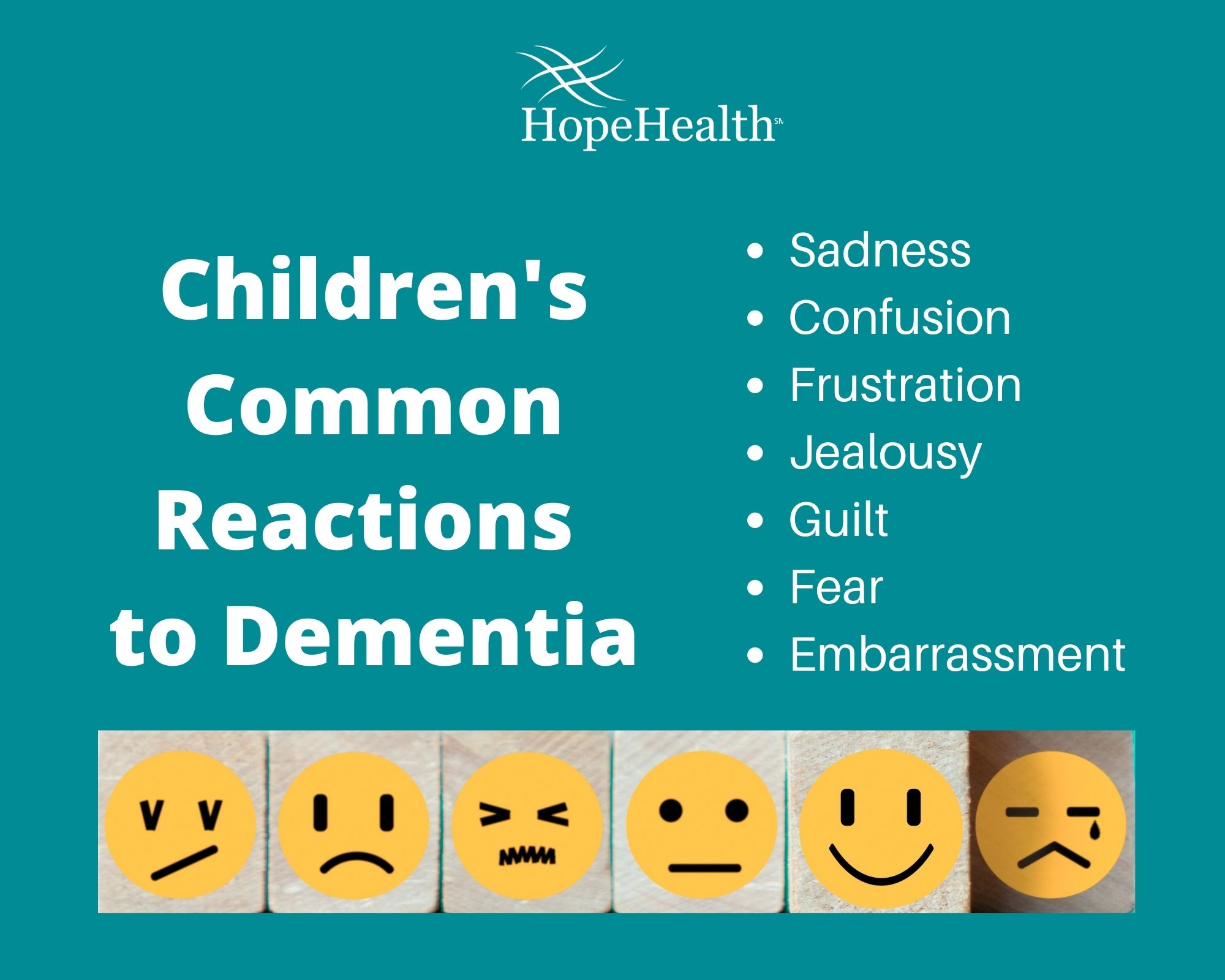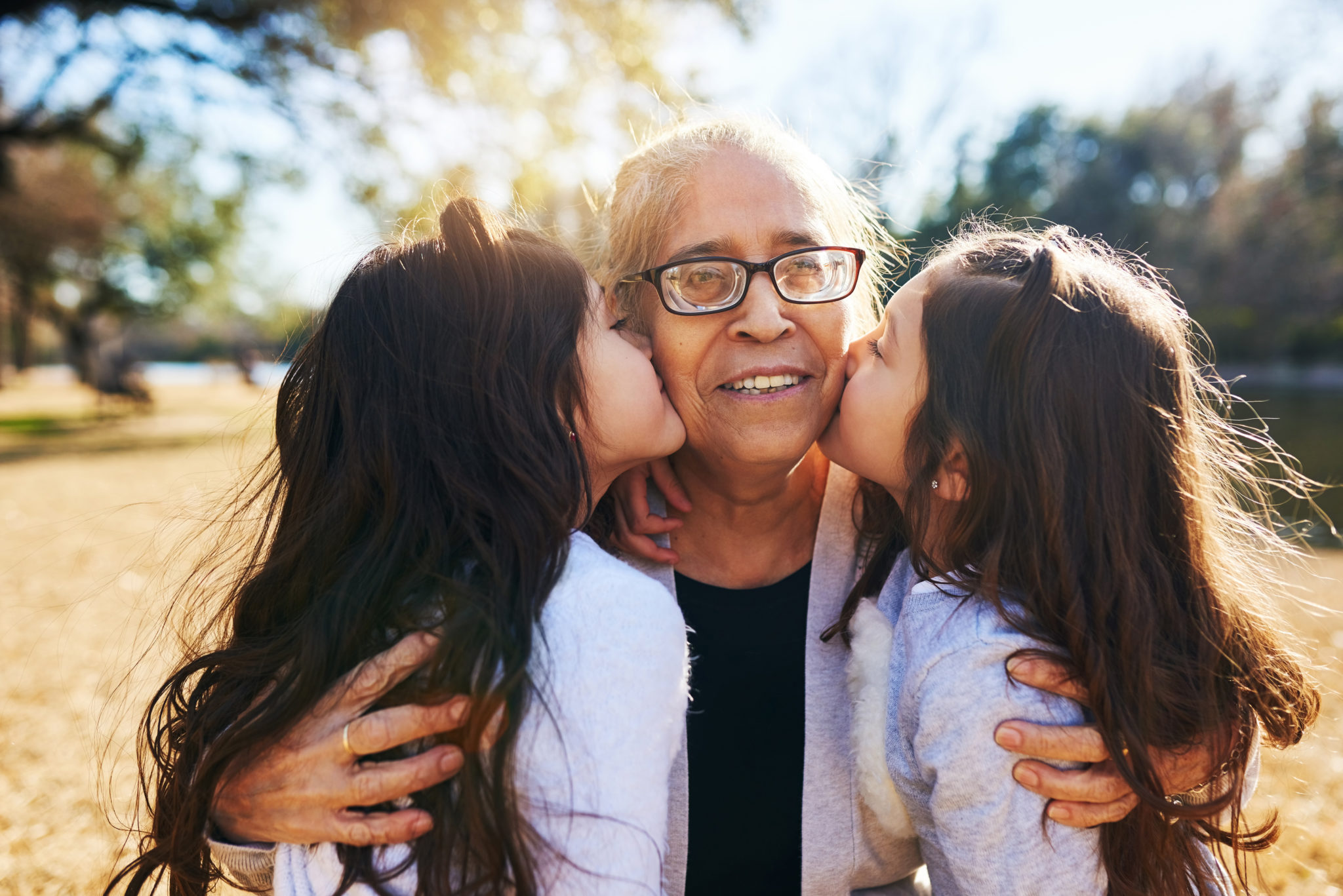If you have a family member with Alzheimer’s disease or a related dementia, holiday gatherings (both in person and virtual) might look different than years past. Your child might ask, “Why doesn’t Grandma remember my name?” or “Why does Uncle George keep saying the same thing over and over?”
It can be unsettling to watch someone you love experience cognitive decline. But children and teens need special support to understand and cope.
Dementia is confusing,” says Sarah DeCosta, LMHC, HopeHealth’s grief support manager and instructor of a dementia community education course. “But when a child understands what is happening, it’s makes it easier for them to show compassion and empathy for their loved one.”

Sarah teaches a course on strategies for keeping young people connected with elder loved ones living with dementia. Here, she offers five ways to help children and teens understand Alzheimer’s and cope as family relationships evolve:
1. Consider your child’s feelings.
How your child reacts to your loved one’s changing behaviors depends on three factors, Sarah says:
- Familial relationship: Is the loved one with dementia your child’s close relative?
- Living arrangements: Do your child and loved one live in the same home?
- Emotional closeness: How bonded is your child with the loved one?
Be mindful that children could experience a mix of feelings and even a few symptoms of anticipatory grief, which is grief of the incremental losses that occur before death.

2. Focus on family time.
Finally, create a safe space where your child can express themselves if they choose. “If you say, ‘I’m feeling really sad today about Grandma,’ that models for kids an appropriate response and gives them an indirect opportunity to share their feelings, too,” Sarah says.
If visits with your loved one are possible, use that together time to strengthen family relationships. Your child/teen and loved one might enjoy cooking, playing cards, going for a walk or coloring together. Singing and listening to music are good choices, too.
3. Write it down.
The act of writing is a proven therapy for processing grief and difficult emotions. Depending on your child’s ability or preference, they could journal their experiences, create a poem or write a letter to the loved one with dementia.
“Writing letters can be freeing to a child, even if they never mail it,” Sarah says.
“The person with dementia can’t express love the way they used to, so encourage your child to look at love in a different way. … Love is the foundation for all of this.”
4. Educate your child about Alzheimer’s and dementia.
Talk to your child ahead of time if you expect Grandma won’t seem like herself during your next visit or Zoom call. “You don’t want to scare them, but you want to prepare them so they’re not shocked,” Sarah says.
The Alzheimer’s Association offers these age-appropriate resources for kids and resources for teens to help you learn about dementia and how it affects the whole family. Also look at these 12 children’s books about dementia.
5. Reminisce and love each other.
If your family cannot get together or your loved one’s dementia is in the advanced stage, give your child a sense of stability by recalling happy memories and traditions.
Look at old photos, tell stories or recreate a family recipe. “Ask your child something like, ‘Do you remember when Grandma used to make these mini-cheesecakes for the holidays? Remember how she used to smile?’” Sarah suggests.
Finally, help your child or teen remember that the love a family shares will never go away.
“The person with dementia can’t express love the way they used to, so encourage your child to look at love in a different way. Remind them that their loved one is still showing love in these ways,” Sarah says. “Love is the foundation for all of this.”
Do you need support while caring for a loved one with Alzheimer’s? Learn about HopeHealth’s dementia care services for patients and families.
Learn more about how to help young people stay connected to loved ones with dementia in a free virtual one-hour course offered by HopeHealth’s community education team. “My Family Member Has Dementia: Helping Young People Maintain Their Relationships with Their Loved One” is offered in Jan. 20, and Feb. 8, 2022 from 9-10 a.m. Register here.

